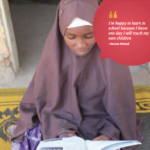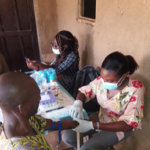The Meeting Targets and Maintaining Epidemic Control (EpiC) Project in Nigeria is funded by the United States Agency for International Development (USAID) and the U.S Presidents Emergency Plan for AIDS Relief (PEPFAR). The project is aimed at increasing access and uptake of comprehensive HIV services to vulnerable and Key populations (KP) including Men who have sex with men, Transgender persons, Female Sex workers, Men who purchase Sex, People who inject drugs, and people in prisons and other enclosed settings. The KP subgroups face cultural barriers, stigma, discrimination, and criminalization of their activities which push them underground and militate their access to HIV services. This results in high transmission and spread of the virus among these groups making them drivers of HIV.
The EpiC project kicked off in January 2020 as the first project to implement HIV interventions for Key populations in Bayelsa state. With no existing data on KPs, the first strategy deployed was community and stakeholder engagement. Meetings were held with the stakeholders and gatekeepers of the different KP subgroups, Civil Society Organizations, Law Enforcement agencies, the Ministry of Health, and other relevant stakeholders in the state. They were informed about the goals and objectives of the project with the major focus to attain and maintain HIV Epidemic control among Key Populations. Several discussions were had with the various groups to gain their support. When their support was secured, the various hotspots for each KP group were mapped out using the snowball sampling technique to get an estimated number of hotspots and estimated population size for the KPs living in Bayelsa state. The initial population size was estimated at 37,000 with 410 hotspots.
One-Stop-Shops (OSS) were then set up through three designated Community-Based Organizations (CBO) in the State. These OSS were designed and adequately equipped with staff to provide comprehensive HIV prevention, treatment, and care services to the KPs. Members of the KP community were also recruited as staff of the OSS to ensure zero tolerance for stigma and discrimination. The OSS was quickly seen as a safe space by the KPs and readily accepted by them.
The project then recruited 15 members of each KP community as peer navigators. These peer navigators were trained and equipped with tools and resources for HIV testing and documentation. They were trained on the provision of targeted HIV services, including testing, linkage to antiretroviral therapy and oral pre-exposure prophylaxis (PrEP), and follow-up for the KPs. The peer navigators were also trained on sexually transmitted infection screening and referral and linkage to comprehensive HIV clinics (OSS) and mobile units. The peer navigators were then sent to the different hotspots in the 8 Local Government Areas in the state.
From January 2020 to May 2021, the project has tested a total number of 39,805 KPs with HIV prevention, care, and treatment services. 4,729 tested positive, and have all been linked to care and initiated on ART. The clients who tested negative for HIV were screened and offered PrEP. The KPs were also screened and treated for sexually transmitted infections (STIs) and this increased uptake of the HIV testing services as STIs were a common occurrence for them. These KPs were reached due to the community-focused and peer-driven strategies that were used to gain access to the various KP networks and communities. Due to the KP inclusive nature of the project, some of the KPs were empowered through the employment they were offered as OSS staff, peer navigators, and CBO staff. Other KPs found the OSS and CBO as safe heaven where they can freely express themselves and spend quality time with members of their community. The project continues to reach more KPs and impact their lives positively.




I am glad to be a part of this drive! 😊